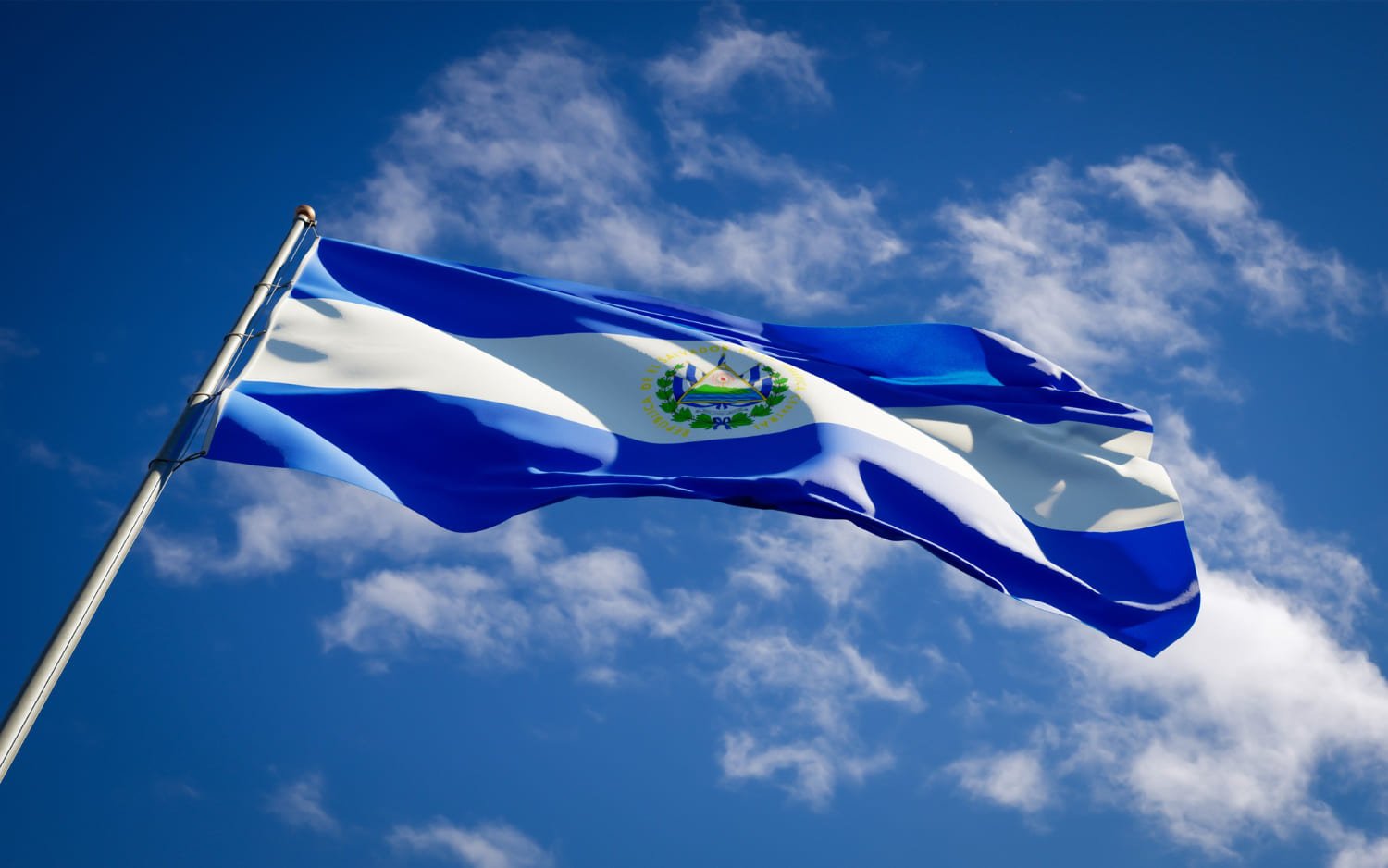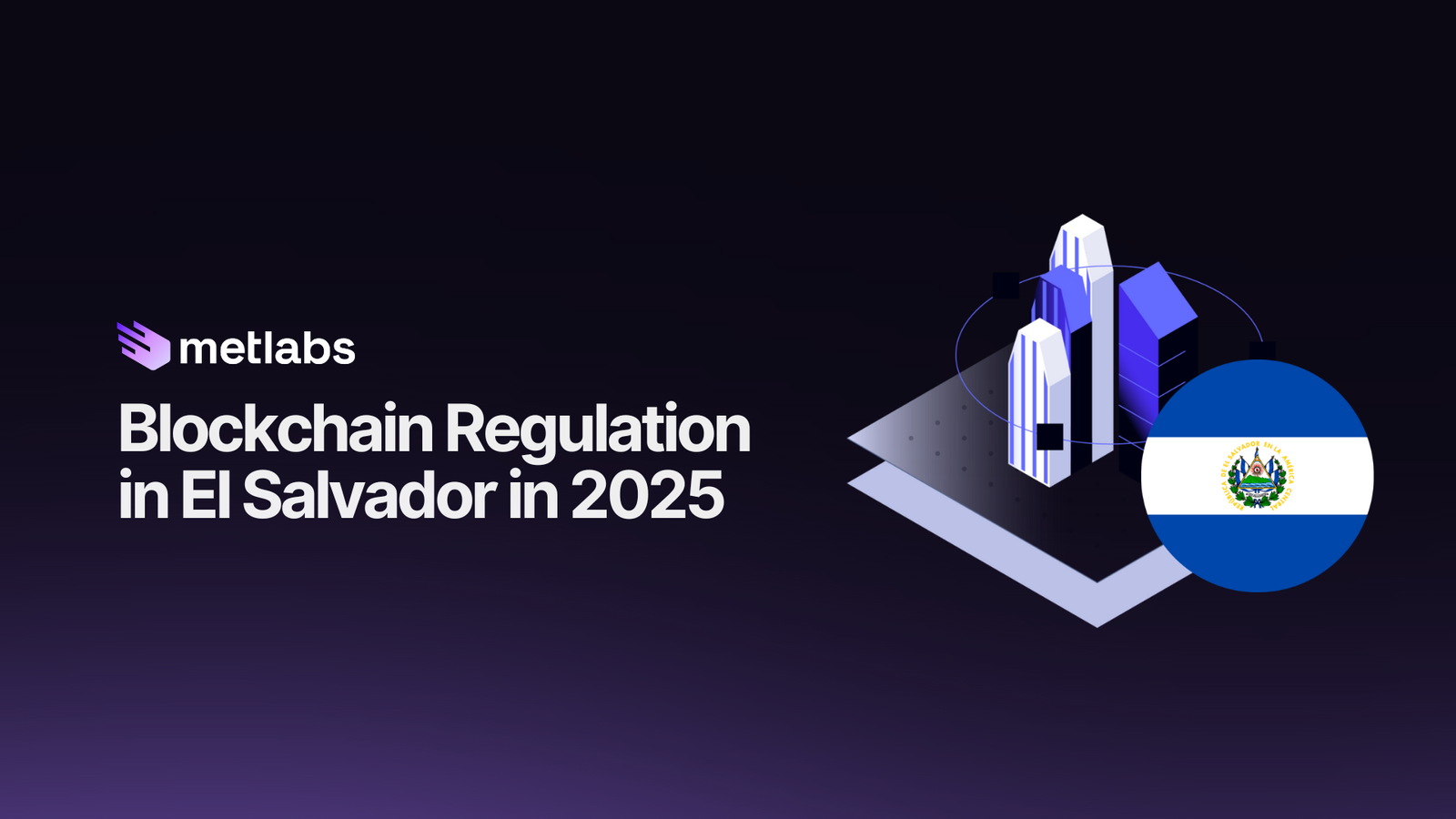The adoption of blockchain technology and asset tokenization is advancing at a rapid pace, but the real engine driving its global development is the existence of a clear, consistent and innovation-friendly legal framework.
Some countries have already established themselves as regulatory benchmarks, establishing specific rules for cryptoassets, DLT infrastructures and token issuance with legal backing. In this article we show you relevant information about blockchain regulation in El Salvador, which you can use as a guide if you are looking to operate internationally or evaluate different strategic locations.

Current legislation on blockchain and virtual assets in El Salvador
Bitcoin Law (Legislative Decree No. 57/2021)
Established bitcoin as legal tender in El Salvador, allowing its use in any transaction. After the 2025 reform, the acceptance of bitcoin is voluntary and the State is excluded from acceptance obligations, while the regulation and supervision of the use of bitcoin falls on the Central Reserve Bank and the Superintendence of the Financial System.
Digital Asset Issuance Law
It constitutes the main framework for the issuance, marketing and registration of digital assets in El Salvador, under the supervision of the National Commission of Digital Assets (CNAD). It regulates the requirements and procedures for issuers, providers and certifiers, establishing obligations of transparency, governance and fraud prevention.
Law for the Promotion of Innovation and the Use of Blockchain Technology
Promotes the development of projects based on blockchain technology, granting tax incentives and tax exemptions to innovative companies in the digital sector. The objective is to attract foreign investment and encourage technological modernization, facilitating the adoption of blockchain solutions in strategic sectors and the development of new digital infrastructures.
Public and Private Issuers and Issuance Registration Regulations
The regulation develops the procedures and requirements for the registration of issuers and issuance of digital assets before the CNAD. It evaluates the agents involved, the technical and financial documentation, and the certification reports necessary to authorize the issuance and marketing of tokens, ensuring the legal, financial and technological feasibility of each project.
Tokenization makes it possible to digitally represent real-world assets through blockchain, but for it to have legal value, it is essential that there is a regulatory framework that recognizes this operation. El Salvador adopts its own approach, establishing specific rules for the issuance, custody or trading of tokens. In this block we explain how asset tokenization is regulated from a legal point of view, taking as an example an advanced jurisdiction such as El Salvador.
Asset tokenization regulation in El Salvador
El Salvador has a specific legal framework for the tokenization of financial and non-financial assets, based on the Law of Issuance of Digital Assets and its regulations. Tokenization can be applied to rights with economic content, real estate, financial instruments and other assets, provided that the projects are authorized by the National Commission of Digital Assets (CNAD) after a comprehensive assessment of risks, feasibility and regulatory compliance.
The process requires the participation of digital asset providers and registered certifiers, the submission of detailed technical and financial documentation, and compliance with transparency and governance standards.
Tax benefits for issuers and investors include exemptions on capital gains and taxes associated with digital asset transactions, which has positioned the country as a competitive destination for real estate and other asset tokenization. In addition, El Salvador has launched in 2025 a cross-border regulatory sandbox in collaboration with the US SEC, allowing controlled experimentation of tokenization models and the issuance of tokens not considered securities, with the objective of gathering regulatory data and strengthening supervised innovation.
Regulatory agencies and authorities of digital assets in El Salvador
National Commission for Digital Assets (CNAD)
The CNAD is the main authority in charge of the regulation, supervision and sanctioning of digital assets in El Salvador, including the issuance, trading and registration of tokens, stablecoins and other digital assets. It dictates the technical and operational standards for PSADs, maintains the public registry of authorized issuers and marketers, and enforces compliance.
Central Reserve Bank (BCR)
The BCR retains regulatory powers over financial operations and the integration of bitcoin into the payment system, issuing regulations for the voluntary adoption of bitcoin, consumer protection and the prevention of illicit activities. It establishes guidelines for financial institutions and coordinates with the SSF to issue complementary regulations.
Superintendency of the Financial System (SSF)
The FSS supervises compliance with anti-money laundering and counter-terrorist financing (AML/CFT) obligations by digital asset service providers. It coordinates the application of the Travel Rule, requires suspicious transaction reports and verifies the implementation of AML/KYC policies in line with FATF international standards.
Launching a business based on digital assets requires more than just technology: it is also necessary to comply with legal requirements such as licensing, registration and regulatory obligations. These conditions ensure that the business model is viable and sustainable over time, and that it complies with transparency and fraud prevention standards. In this section we explore what licenses are usually required and what compliance criteria blockchain companies operating in El Salvador must follow.

What licenses and requirements are needed to operate with cryptoassets in El Salvador?
Digital Asset Issuer License
The Law on Issuance of Digital Assets establishes that any entity issuing public or private digital assets must obtain authorization from the CNAD. This license requires submitting a technical and legal whitepaper, complying with governance, transparency, risk disclosure and cybersecurity standards. In addition, issuers must implement cybersecurity policies, periodic reports and anti-fraud monitoring systems.
Digital Asset Service Provider (DASP) License
To operate legally as a PSAD in El Salvador it is mandatory to obtain a PSAD license from the CNAD. The process requires the submission of a formal application, corporate documentation, compliance manuals, AML/KYC policies and evidence of technical and operational capacity. The CNAD evaluates the information and, if favorable, grants final registration and authorization to operate. Only registered PSADs may offer services such as exchange, custody, issuance or trading.
AML/KYC Compliance
All PSADs and issuers of digital assets must implement robust money laundering and terrorist financing prevention policies aligned with FATF standards. This involves customer identity verification, transaction monitoring, suspicious transaction reporting and record keeping. In addition, the CNAD notifies the Financial Investigation Unit (UIF) of the registration of new suppliers.
Other regulatory requirements
Issuers and certifiers of digital assets must comply with specific requirements of transparency, governance and presentation of technical and financial documentation. Registration with the CNAD, validation of projects and compliance with security and investor protection standards are required. Issuers must submit periodic reports and undergo audits, while certifiers must demonstrate technical expertise and solvency.
Are you exploring developing your blockchain project in El Salvador?
At Metlabs we help companies like yours and offer comprehensive support in the development of blockchain projects and tokenization of assets such as real estate, carbon credits, commodities, intellectual property, financial instruments, franchises and more, fully aligned with blockchain regulation in El Salvador and international regulatory standards.
Contact us and find out how we can help you meeting all your business model needs, from technical validation and structuring to design, development and implementation of custom blockchain solutions, ready to scale from day one.



